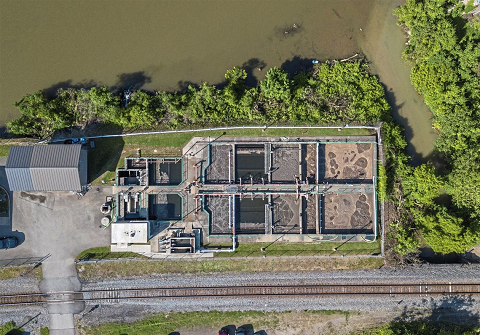Delaware RiverKeeper, et al File Lawsuit
August 16, 2011DCS Files NEPA Lawsuit Emphasizing Need for Health Impact Assessment
August 17, 2011Range Resources made a significant move Tuesday in what is likely the first step in a legal challenge to the wave of small-town regulations on natural gas drilling in the Marcellus Shale. The Fort Worth, Texas-based company filed an appeal to the zoning hearing board of South Fayette that calls its drilling ordinance an “illegal” infraction against the company’s business pursuits. Range Resources says the township’s zoning ordinance enforces buffer zones around schools, hospitals and certain commercial areas that force a de facto moratorium on drilling throughout the entire township.
That violates the portion of Pennsylvania’s Municipalities Planning Code that requires all municipalities to “allow for reasonable development of minerals” as part of any zoning ordinance, the company said. The matter is before the zoning hearing board because the drilling regulations involved the township’s zoning ordinance. A date for the zoning hearing has not been set, but Range Resources spokesman Matt Pitzarella said his company will take the issue to the Court of Common Pleas and up the legal ladder if it is rejected by the South Fayette authorities.
If Range Resources wins a ruling in a higher court, it could create a precedent and threaten to overturn scores of small-town ordinances across Pennsylvania. Throughout Western Pennsylvania, townships have passed ordinances that further regulate drilling beyond state law or take steps to mitigate side effects like road damage or noise control.
Range Resources owns approximately 4,000 acres in South Fayette but has not drilled any Marcellus wells. The ordinance was approved last November after more than a year of public hearings and input from energy companies, including Range Resources. South Fayette solicitor Jonathan Kamin said the ordinance still allows drilling in “many zoning districts” throughout the township — they just might not be in the convenient areas that Range Resources would prefer. “Everyone has recognized that this is a use that cannot be banned,” said Mr. Kamin. Local communities like South Fayette have drafted conditional use ordinances to deal with natural gas drilling, which require every well site to undergo an approval process prior to drilling.
Energy companies say the site-specific requirements make as much sense as requiring a new driver’s license in every town, and that the process slows predictability in an industry that plans years in advance. “It’s death by a thousand paper cuts,” said Mr. Pitzarella.
The South Fayette ordinance enforces regulations that are already in place as part of the Pennsylvania Oil and Gas Act, and Range Resources says that regulatory double-dipping is illegal. “[South Fayette] unlawfully seeks to achieve the same purposes and to regulate the same features of the development of oil and natural gas which are regulated exclusively and comprehensively by the Commonwealth,” the appeal states.
Range Resources said the conditions of the ordinance are a “de facto taking” of land that make it impossible to drill. The company says this violates the Fifth Amendment of the U.S. Constitution, which says private property cannot be taken for public use “without just compensation.” With the ordinance in place, Range Resources calculated the potential loss to the company and its leaseholders in South Fayette to be nearly $200 million.
Range Resources has already challenged local ordinances that it interprets as going too far. During deliberations for a conditional use ordinance in Mount Pleasant last April, the company sent a letter to residents threatening to move into “more cooperative communities” should the ordinance pass. That ordinance did pass in June, and Range Resources has kept its promise to not drill any new wells in Mount Pleasant as long as it stays in place.
The appeal filed Tuesday in South Fayette is the latest in a series of recent challenges to local drilling regulations. Earlier this month, Pittsburgh Mayor Luke Ravenstahl refused to sign a city council measure that would have banned drilling within Pittsburgh city limits, and a similar ban in Morgantown, W.Va., was overturned by a judge last Friday.



